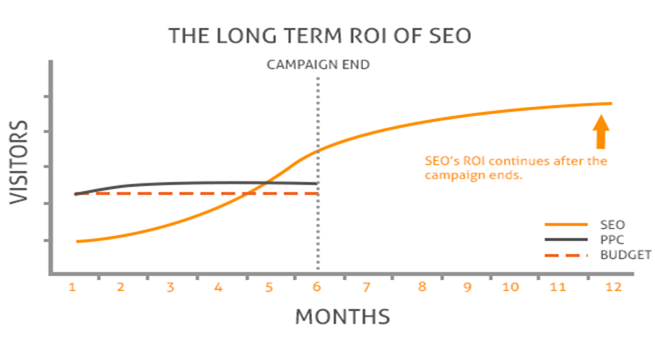If you are new to digital marketing, setting the SEO budget is probably an activity that is out of your hands and causes you some insecurity or even anxiety. The offer of promotional services is so extensive, and the figures proposed by agencies and freelancers are so different, that knowing how to choose the wheat from the tares is essential. Let's learn how to do it in this article!
How to correctly set the SEO and digital marketing budget?
- It all starts with your sales goals for the coming year. Sales can be estimated based on the history of the business +- the variations in %, given by the economic situation in the area, the trend the business is in, and the long-term contracts you have already signed. It is very important to compare your sales figures with those of your competitors; you can usually find relevant financial statements online. So use the revenue and expense data, headcount, and profits of the top companies in this industry to understand what your niche's potential is. Very important to mention here is that you will come with the necessary quarterly corrections to these estimates, to keep your finger on the plus side in terms of income and expenses, adjusting and changing the investment direction, if necessary.
- A good way to define the annual marketing budget is as a % of the income made in the previous year, or of the profit estimated at the first point. A good rule of thumb for setting a marketing budget is 6 to 12% of gross revenue, with higher expenses in the early stages as you establish your marketing base. Especially on the SEO side, you should be prepared for the fact that the investment pays off in at least 6 months.

3. Distribute the marketing budget correctly across channels. How is this done? If we talk in general terms, online, you have 2 big providers of advertising space: Google and Facebook. Your budgets will be divided between the two of them, especially if you're just starting and you need to capture as many qualified leads as possible from the virtual environment.
The budget for Facebook
So let's take them one at a time. For Facebook, monthly budgets are set according to the size of the target audience. We have the CPM in your country and for your industry. Add to these numbers the frequency with which you want to appear in front of prospects, and voila: that's how much you need to spend on Facebook to display your ad optimally, to those who might be interested in your products and services.
The budget for Google Ads
When it comes to Google Ads, you have to follow the same principle, according to an average cost per click obtained in your niche and on the keywords you target, you can set a monthly budget, and 50% of it you can plan for remarketing activities (surely it has happened to you while surfing the Internet that an online advertisement of a site you recently visited appears to you. This is how remarketing works, and it is especially powerful in bringing in quality leads.
Disclaimer: Any marketing message only works if the brand being promoted is of good quality and is honest with its clientele. However, no matter how creative, colorful, and beautiful your ads are, they can still fail if you don't have a nice person answering calls in your company.
SEO Budget: How do SEO agencies and specialists set budgets for SEO campaigns?
Our SEO specialists consider everything from business needs and website performance to competitor analysis, on-page SEO optimization, backlink-building strategies, local SEO, and more.

In general, the price of the proposed SEO services depends on 3 essential factors:
- Market maturity and level of competition in the market.
- The current degree of optimization of your site.
- Proposed goals: the level of visibility and impact that the client is looking for.
The packages suggested in the offer usually take into account one or more of the features mentioned above.
Here's what we analyze before proposing an SEO service package for your website:
- How long has your web domain been around? But how long have other websites been on the market, competing for the same keywords?
- How much organic traffic are we currently seeing in Google Analytics, and what are your general traffic sources?
- Is the site ranking only for brand keywords, or are there more competitive keywords that are driving your site impressions and clicks?
- What does Google Search Console say about impressions and clicks on your site over time? Is it growth, regression, or stagnation?
- Has this site ever been penalized?
- Does your website currently rank on the first page for relevant search terms, either locally or nationally?
- How healthy is your backlink profile compared to the top sites in your niche?
- Are you competing with big brands, with well-known local businesses, or run by famous personalities?
- How often do your biggest competitors publish new blog articles, news, and/or web pages?
- Can the company take on an SEO campaign right now? Or is there a pressing need for this budget to be allocated to a marketing channel that pays off faster?
- What is your site's bounce rate? Is it within the right parameters for the niche it belongs to?
Let's talk a little about numbers. Here is the SEO budget according to competitiveness:
- The SEO budget in a competitive online market reaches several thousand euros per month.
- For SEOs trying to attract local buyers in a not-so-competitive market, it is possible to launch a local SEO campaign for 300 - 1500 euros/month.
